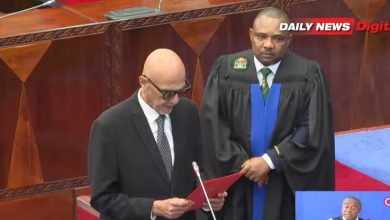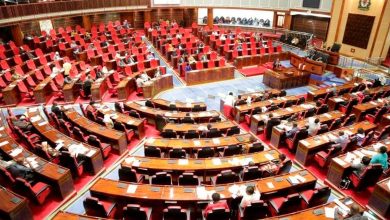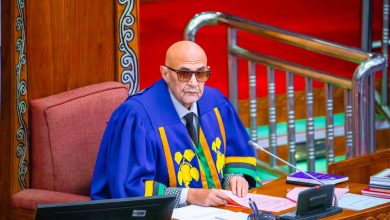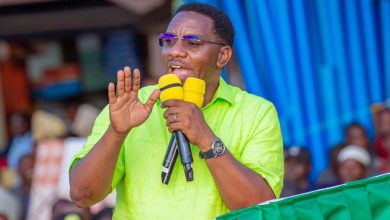CCM candidate pledges bold plans to uplift Ngorongoro
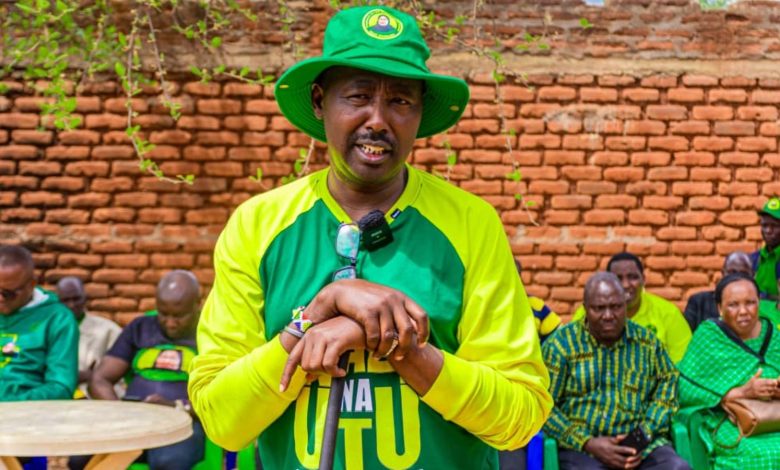
ARUSHA: NGORONGORO Constituency stands as one of Tanzania’s most unique and resource-rich areas, home to globally recognised attractions such as the Ngorongoro Conservation Area Authority (NCAA), Lake Natron, and part of the world-famous Serengeti National Park.
These natural wonders contribute billions of shillings to the national coffers each year, cementing the constituency’s place as a cornerstone of the country’s tourism industry.
Speaking in an interview with the ‘Daily News’ , Chama Cha Mapinduzi (CCM)’s parliamentary candidate for Ngorongoro, Mr Yanick Ndoinyo, laid out an ambitious plan to transform the constituency’s fortunes, calling on the government to increase the development budget from 88bn/- to 200bn/- to meet the growing needs of local communities.
“Ngorongoro Constituency has 273,000 residents and has faced development obstacles for a long time,” Mr Ndoinyo said.
“Accessibility from its headquarters in Loliondo Town to various wards remains a major challenge. The funds allocated for development are useful, but they are simply not enough to deliver lasting change,” he added.
Mr Ndoinyo pointed out that one of the greatest challenges affecting service delivery is a chronic shortage of civil servants.
“The Ngorongoro District Council currently has only 378 employees, while the requirement stands at 1,020,” he explained.
“This leaves a deficit of 642 workers, which weakens operations across departments, from health and education to water and agriculture.”
He attributed the shortage partly to the harsh terrain and remote nature of the constituency, which has fostered a perception that working in Ngorongoro is a punishment rather than an opportunity to serve.
To reverse this, he intends to work closely with the government to create a more conducive working environment, including providing better housing, reliable transport and incentives for public servants posted in the area.
“We must change this mindset. Serving in Ngorongoro should be seen as an honour, not a penalty. This region represents Tanzania’s pride in conservation and cultural heritage,” he said.
Health services remain a pressing concern across Ngorongoro, where residents often travel long distances to access treatment.
The constituency currently has only three hospitals compared to a requirement of five, seven health centres instead of 28 and 27 dispensaries against a need for 65.
Mr Ndoinyo pledged to lobby for increased investment in maternal and child health, well equipped laboratories, maternity wards and medical supplies.
“Currently, medicine availability in the constituency stands at around 64 per cent, but more is required to bridge the gap and improve quality healthcare for all,” he said.
Education, too, remains central to his campaign. Many school-age children face long walks to reach classrooms, discouraging attendance and leading to dropouts.
ALSO READ: Ngorongoro Crater tops tourist attractions in Africa
“My goal is to ensure that every ward has both primary and secondary schools with enough teachers and facilities,” he said.
“When we bring schools closer to communities, we empower families to view education as the foundation for a better future,” he said.
He added that investment in teacher recruitment and modern learning resources would be essential to ensure quality education that matches the unique social and cultural context of Ngorongoro’s pastoralist communities.
Ngorongoro remains one of the few constituencies in Tanzania not connected by tarmac roads, a situation that continues to hamper trade, healthcare access and the delivery of social services.
High on Mr Ndoinyo’s list of priorities is the completion of the Sale–Kigongoni (Mto wa Mbu) Road, a 164-kilometre project that would open up Loliondo Town and link communities to key markets and government services.
“When this road is complete, it will transform our economy,” he said. “It will allow farmers and pastoralists to reach new markets, attract investors, and enable tourists to travel more easily to our attractions,” he said.
He added that improving connectivity would not only enhance trade but also make it easier for teachers, doctors, and government officials to work and live comfortably in the constituency.
Despite its infrastructure challenges, Ngorongoro remains a magnet for tourists.
Over 600,000 visitors have toured the area in the past five years, drawn by its breathtaking landscapes, wildlife, and cultural richness.
Mr Ndoinyo believes this number could easily double if key facilities were improved.
“If we upgrade the Wasso airstrip and complete the tarmac roads, the number of tourists will increase significantly,” he said.
“Improved accessibility will benefit both the tourism industry and the local economy, creating jobs for youth and empowering women to participate in tourismrelated businesses,” he added.
He also underscored the need to link tourism revenues more directly to local development, ensuring that communities benefit from conservation through improved infrastructure, schools, and health facilities.
“When people see the benefits of tourism, they will become even stronger stewards of conservation,” he noted.
Looking beyond tourism, Mr Ndoinyo also envisions the establishment of a meat and dairy processing factory to boost the livestock sector, which forms the backbone of Ngorongoro’s economy.
“Our pastoralists have plenty of cattle, but they lack reliable markets and processing facilities,” he said.
“With a local factory, we can add value, increase incomes, and create employment.”
He also plans to promote food and cash crop farming to reduce dependence on livestock and strengthen household food security.
In addition, he envisions setting up a community bank to improve financial inclusion and provide credit to small entrepreneurs, farmers, and youth groups.
Mr Ndoinyo’s campaign message centres on inclusive development—ensuring that every resident of Ngorongoro, regardless of location, benefits from the constituency’s vast natural wealth.
His approach combines economic empowerment, education, infrastructure, and conservation as interlinked pillars of progress.
“Ngorongoro is not only rich in resources but also in potential,” he concluded.
“With the right investment and commitment, we can turn this constituency into a model of balanced development—where people and nature thrive together.”


